Scale Faster & Predictably
(With More Time Freedom)
Install the proven growth-oriented 2X Operating System to create a thriving 7/8-figure business (that isn’t so reliant on you!)

About
Books
Coaching
Scale Faster & Predictably (With More Time Freedom)
Install the proven growth-oriented 2X Operating System to create a thriving 7/8-figure business (that isn’t so reliant on you!)
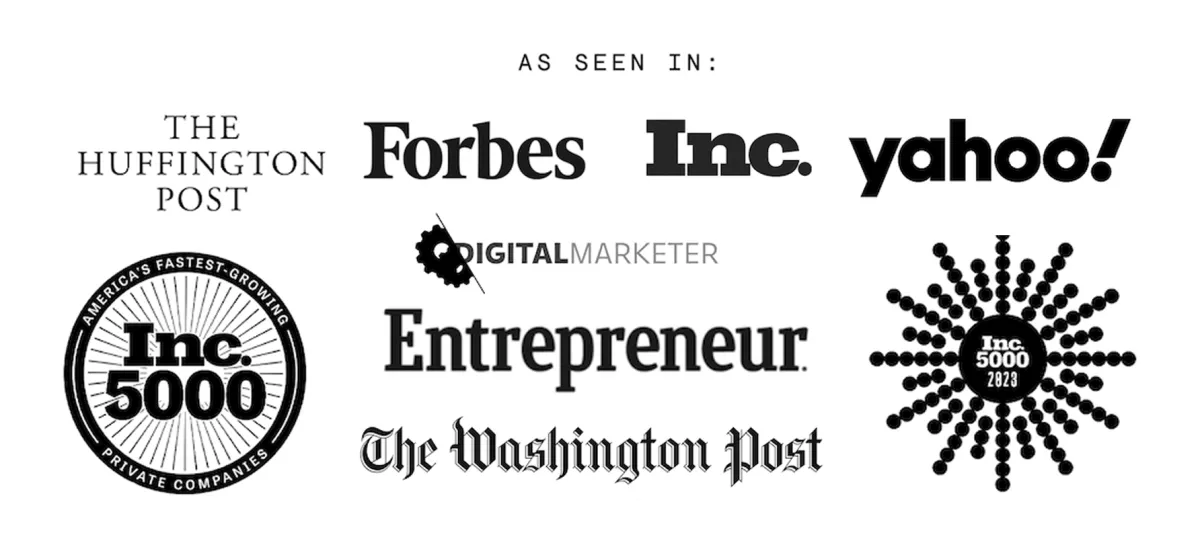

Scaling Starts Here
Unlock The Proven Path To Scale Faster With More Freedom

FOR 6-FIGURE ENTREPRENEURS
The 6→7 Figure Accelerator
Implement the proven playbook, systems and strategies to scale fast from six to multiple seven figures, without burning out or getting stuck in operations.
FOR 7-FIGURE CEOs
Scale Without You™
Transform your business into a machine so you can shift from operator to true CEO and scale faster to 8-figures with more freedom.
Industry-Leading Results

$513 M+
In Client Growth

20,000+
Hours Freed Up

11X
Growth Rate

MOST ONLINE CEOS
Stuck Working “IN” The Business
Overwhelmed, Pulled In 100 Directions
Inconsistent & Lack of Leads
Frustrated With Your Team
Unpredictable Sales & Revenue
Business Is Reliant On You. Can’t Take Time Off
Not Scaling!
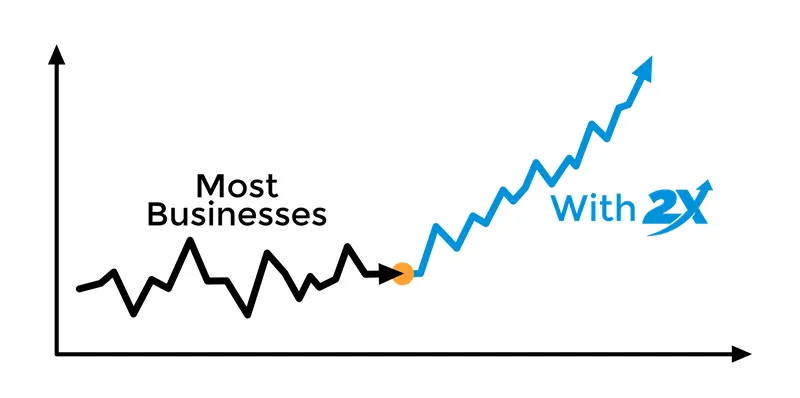
The 2X Approach
Install The Proven 2X Operating System
Free Up Time & Work “ON” The Business (in true CEO role)
Simplify & Optimize Your Business To Scale
Get Your Operations & Team Humming (without you in the day-to-day)
Increase Cash Flow & Profitability
Drive Faster, Predictable Growth (without the chaos and overwhelm)
Generate The Wealth & Success You Know Is Possible
Over $513M+ In Client Growth
We have the proven process and systems we’ve optimized for years to help you get free and grow to multiple 7-figures (and beyond).

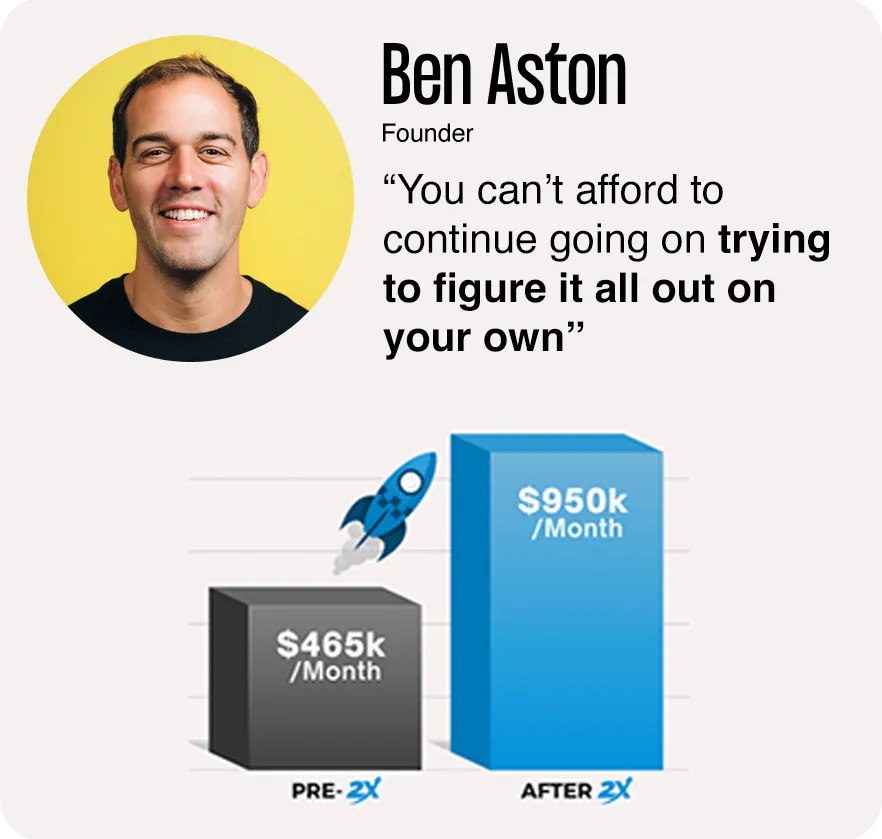
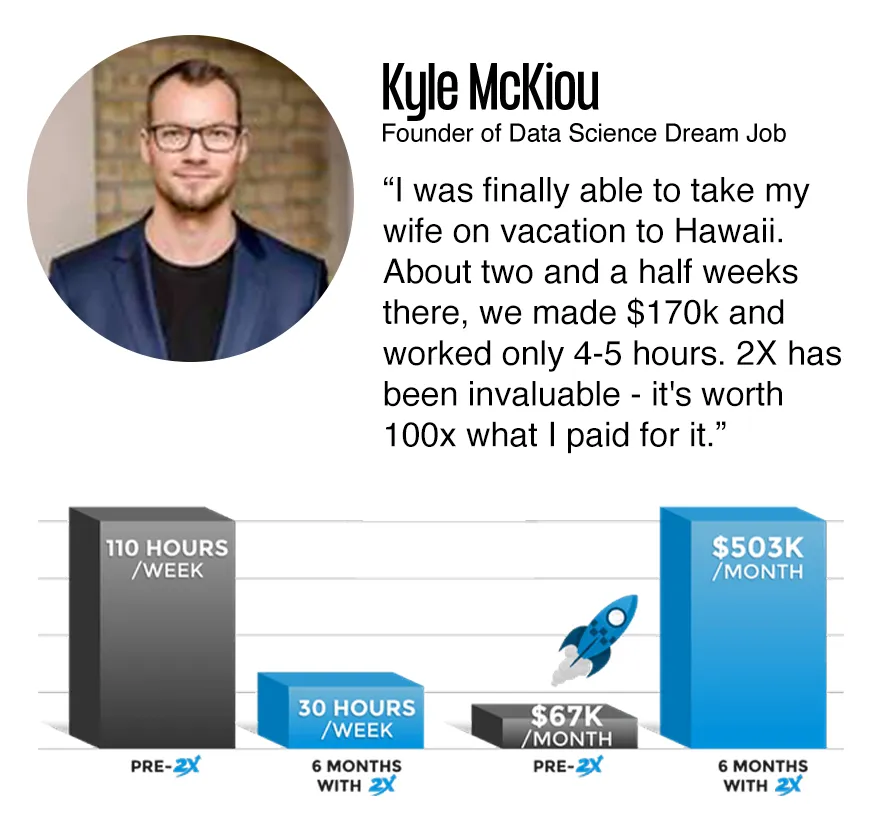
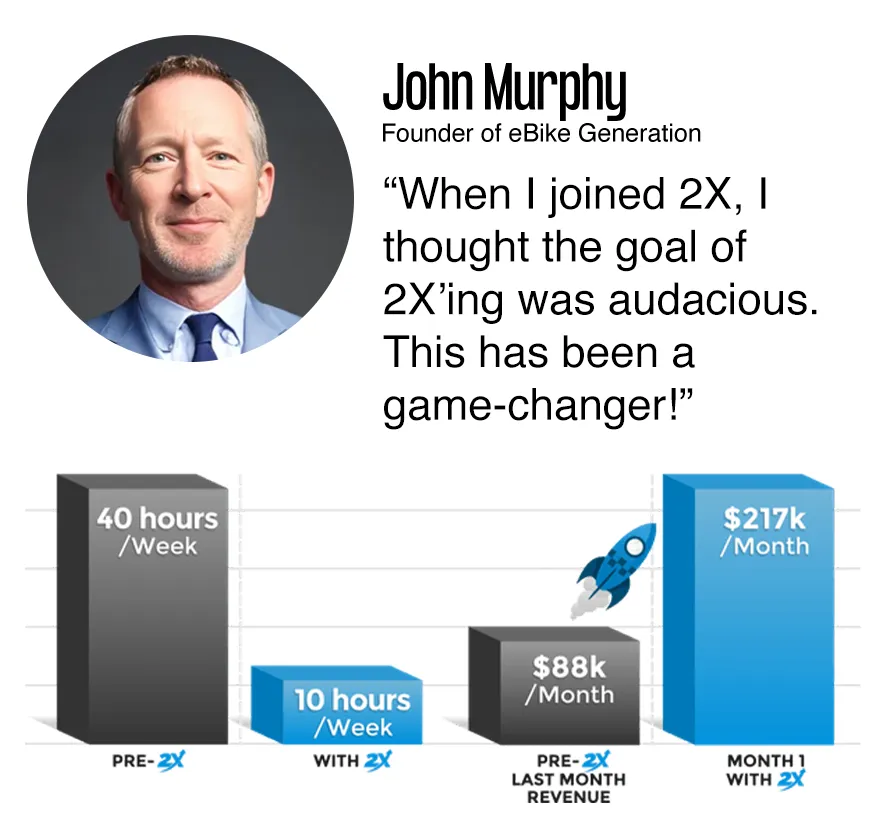
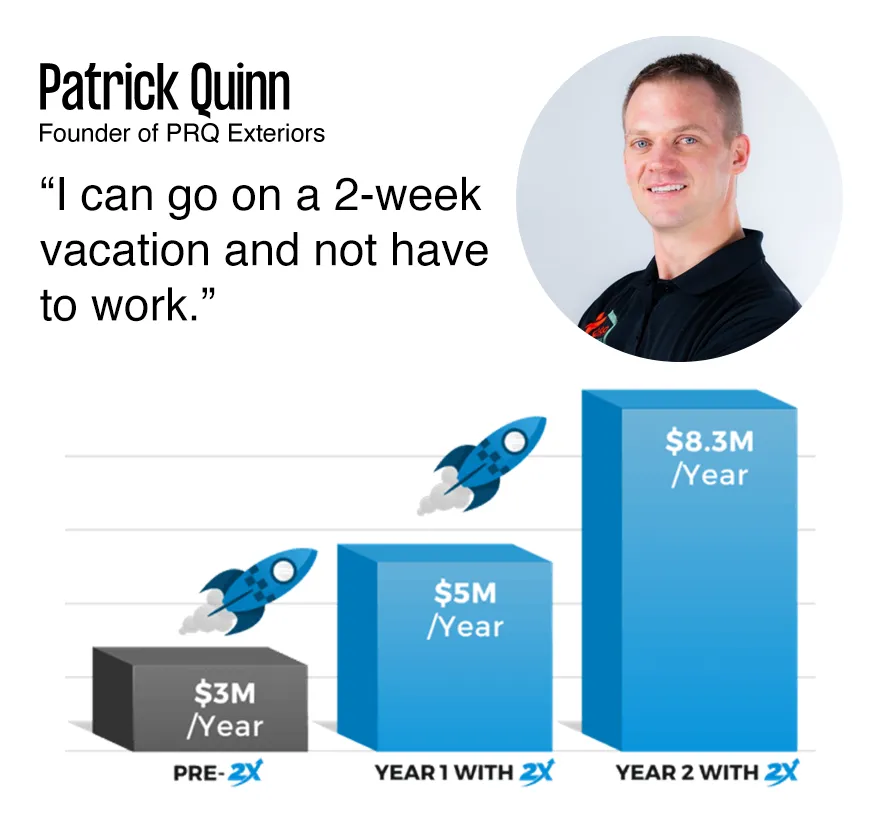
Scale Faster & Smarter
You can in fact have a wildly successful 8-figure business that scales consistently without being stuck “in” the business. We’ll show you how.

Complete The Business Growth Assessment
Build the structure, team, and accountability to scale from six to seven figures, without burning out or getting stuck in operations.

Get A Custom Growth Plan
Build the structure, team, and accountability to scale from six to seven figures, without burning out or getting stuck in operations.

Scale With Consistency
& Control
Build the structure, team, and accountability to scale from six to seven figures, without burning out or getting stuck in operations.
Scale Faster & Smarter
You can in fact have a wildly successful 8-figure business that scales consistently without being stuck “in” the business. We’ll show you how.

Complete The Business Growth Assessment
Build the structure, team, and accountability to scale from six to seven figures, without burning out or getting stuck in operations.

Get A Custom Growth Plan
Build the structure, team, and accountability to scale from six to seven figures, without burning out or getting stuck in operations.

Scale With Consistency
& Control
Build the structure, team, and accountability to scale from six to seven figures, without burning out or getting stuck in operations.
Systems, Scale & Founder Freedom
Real strategies. Real systems. Real talk on building a business that grows without depending on you.

© 2025 2X | Systemize & Scale, LLC
Disclaimer: Fast growth and big success are not easy. We help entrepreneurs 1-on-1 to implement strategies based on our experience and expertise. Each business is different, which means that every situation is different, and your results will vary.